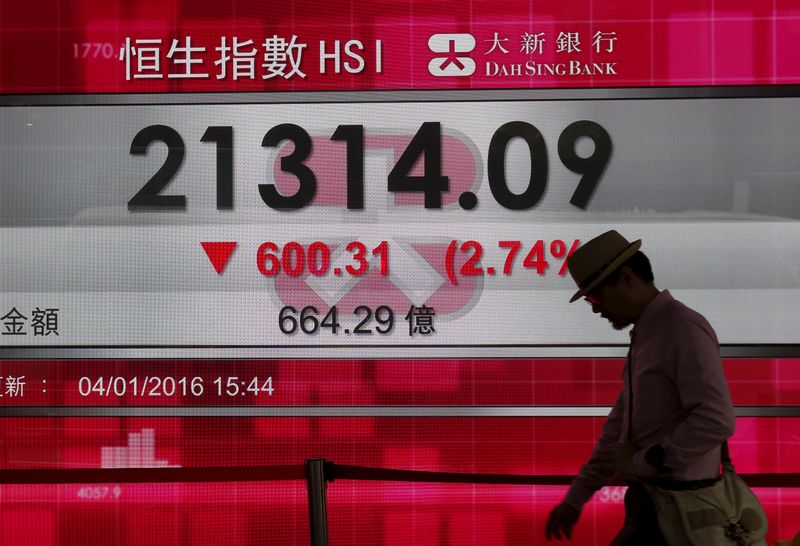This post was originally published on this site

Investing.com — Most Asian stock markets slipped on Friday and were set to end the week lower as rising U.S. Treasury yields ramped up fears of a looming recession, while weaker-than-expected Chinese inflation data also weighed on regional sentiment.
China’s Shanghai Shenzhen CSI 300 and Shanghai Composite indexes fell 0.7% and 0.6%, respectively, as data showed that consumer inflation grew less than expected in January, while producer inflation shrank further.
The weak readings indicated that an economic recovery in the country was taking longer than expected after the lifting of most anti-COVID measures earlier this year. Weakness in China has spilled over into the rest of the region, given the country’s role as a major trading hub.
The two Chinese indexes were set to lose as much as 1% this week.
Hong Kong’s Hang Seng index sank 1.8% and was trading down nearly 2% for the week. Chipmaker Semiconductor Manufacturing International Corp (HK:0981) was among the worst performers on the index on Friday, down nearly 4% after it warned of weak sales in 2023 due to a looming downturn in the chip industry. The warning also battered other major technology stocks.
Broader Asian markets retreated as a spike in short-term Treasury yields pushed up fears of a potential U.S. recession this year. Deepening yield curve inversion – a classic signal for a recession – also rattled sentiment towards risk-driven markets.
Asian stocks also took a weak lead-in from Wall Street indexes, which tumbled overnight on a mix of weak earnings and recession fears. Markets were also split over the path of U.S. monetary policy following a string of hawkish signals from the Federal Reserve week.
But higher-than-expected weekly jobless claims data pushed up some expectations that the U.S. jobs market was cooling after showing unexpected strength in January.
Focus now turns to U.S. consumer inflation data due next week for more cues on the world’s largest economy.
Japan’s Nikkei 225 index rose slightly on Friday, as data showed producer inflation fell slightly more than expected in January. But inflation still remained close to 40-year highs, with elevated consumer inflation also brewing concerns over monetary policy tightening by the Bank of Japan.
India’s Nifty 50 and BSE Sensex 30 indexes fell 0.3% each, as a selldown in shares under the Adani Group continued. Index operator MSCI said it will cut the weightings of four Adani firms, including the flagship Adani Enterprises Ltd (NS:ADEL), from its indexes, after reassessing their free float status.


